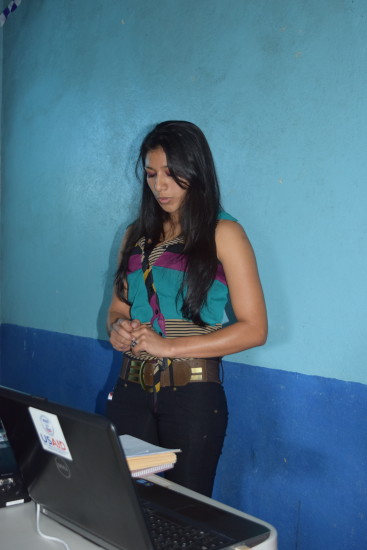This project, which was originally featured in the February 2015 issue of the Feed the Future monthly newsletter, highlights the challenges faced by women farmers in Honduras and how your support helps to promote gender inclusiveness in agriculture. As we celebrate Women's History Month, Lutheran World Relief gives thanks for your support, which allows us to work around the world to ensure both men and women benefit from our long-term, sustainable development work.
According to the World Food Program, Honduras is the third poorest country in Latin America and the Caribbean, with 1.5 million of its 8.5 million people facing food insecurity. Although women make up a major part of agricultural labor force, they receive lower incomes and experience greater food insecurity than men because they have less access to productive assets (like land, seeds and tools), technology, and extension and financial services.
Honduras recently passed a law allocating five percent of municipal (local) budgets for building women’s enterprises, but implementation and enforcement of the law is inconsistent.
Building confidence, inspiring leadership
To address these barriers, Feed the Future and Lutheran World Relief are working together with ten municipalities in Western Honduras on a project to help women and men to advocate for policy changes that enhance women’s access to credit and respond to their needs in agriculture. The project builds participation, leadership and public administration skills to empower 10 women’s municipal networks to solicit public funding for their members’ agricultural enterprises. These networks serve as a collective voice for women in their respective communities.

The networks’ growing leadership and negotiating skills have been important factors in the project’s success. By serving as a liaison between local government and civil society, Honduras’s Municipal Office on Women has given strong support to the women’s networks and further developed their capacity to achieve their objectives.
Ana Amaya, president of the Municipal Women’s Network of Candelaria municipality, says women have advocated for more resources since the project started. “Since last year, we have taken the initiative as women to work on small-scale farming projects,” she says. So far, four of the 10 municipal women’s groups have had projects funded through the five percent allocation for women’s enterprises.
Consuelo Gámez, president of the Gualcinse municipality, says the training courses have boosted her confidence. “I am aware of my rights as a woman and I fight to defend the rights of all women. Before, when I didn’t know anything about it, I was too shy to speak in public because I didn’t feel sure of what I wanted to say. Now I can talk to anyone – a mayor, the president.”
An Active Role for Men
To promote equitable political and economic participation by women, the project fosters changes in male attitudes toward equality. Rodrigo Ramos, a grain farmer, is the president of a rural credit institution in Tomalá municipality. Along with men from other rural credit institutions, he participated in intensive gender awareness training.

During the trainings, Rodrigo shared life experiences that have shaped his notion of roles, and recognized that in order to promote equality, he and other men need to play an active role. “My big challenge is to involve more women in the rural credit institutions and their boards,” he says. “I am hopeful that at least two women will soon be part of the board of directors. We’ve been actively lobbying on behalf of these women.”
Today, members of the women’s municipal networks are working with local governments to effectively use the allocated public funds, while men who participated in gender awareness training are becoming more aware of the challenges women face and are working to ensure they receive equitable resources.
Feed the Future is the U.S. Government’s global hunger and food security initiative. Learn more about this project on our LWR In-Depth website.

